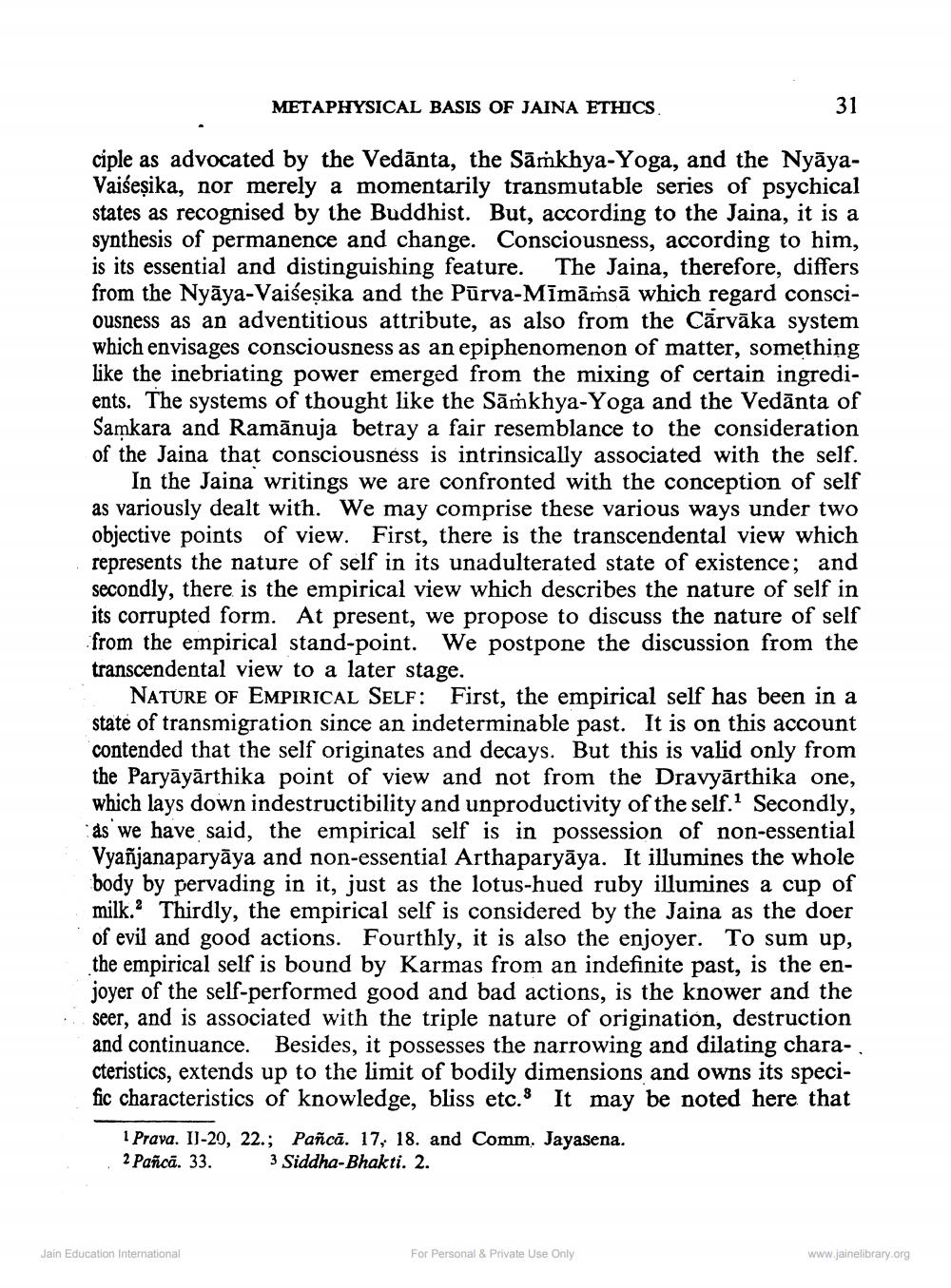________________
METAPHYSICAL BASIS OF JAINA ETHICS
31
ciple as advocated by the Vedānta, the Sāmkhya-Yoga, and the NyāyaVaiseșika, nor merely a momentarily transmutable series of psychical states as recognised by the Buddhist. But, according to the Jaina, it is a synthesis of permanence and change. Consciousness, according to him,
essential and distinguishing feature. The Jaina, therefore, differs from the Nyāya-Vaiseșika and the Pūrva-Mīmāṁsā which regard consciousness as an adventitious attribute, as also from the Cārvāka system which envisages consciousness as an epiphenomenon of matter, something like the inebriating power emerged from the mixing of certain ingredients. The systems of thought like the Sāṁkhya-Yoga and the Vedānta of Samkara and Ramānuja betray a fair resemblance to the consideration of the Jaina that consciousness is intrinsically associated with the sell
In the Jaina writings we are confronted with the conception of self as variously dealt with. We may comprise these various ways under two objective points of view. First, there is the transcendental view which represents the nature of self in its unadulterated state of existence; and secondly, there is the empirical view which describes the nature of self in its corrupted form. At present, we propose to discuss the nature of self from the empirical stand-point. We postpone the discussion from the transcendental view to a later stage.
NATURE OF EMPIRICAL SELF: First, the empirical self has been in a state of transmigration since an indeterminable past. It is on this account contended that the self originates and decays. But this is valid only from the Paryāyārthika point of view and not from the Dravyārthika one, which lays down indestructibility and unproductivity of the self. Secondly, as we have said, the empirical self is in possession of non-essential Vyañjanaparyāya and non-essential Arthaparyāya. It illumines the whole body by pervading in it, just as the lotus-hued ruby illumines a cup of milk. Thirdly, the empirical self is considered by the Jaina as the doer of evil and good actions. Fourthly, it is also the enjoyer. To sum up, the empirical self is bound by Karmas from an indefinite past, is the enjoyer of the self-performed good and bad actions, is the knower and the seer, and is associated with the triple nature of origination, destruction and continuance. Besides, it possesses the narrowing and dilating characteristics, extends up to the limit of bodily dimensions and owns its specific characteristics of knowledge, bliss etc. It may be noted here that
1 Prava. Il-20, 22.; Pañca. 17, 18. and Comm. Jayasena. 2 Pañcā. 33. 3 Siddha-Bhakti. 2.
Jain Education International
For Personal & Private Use Only
www.jainelibrary.org




